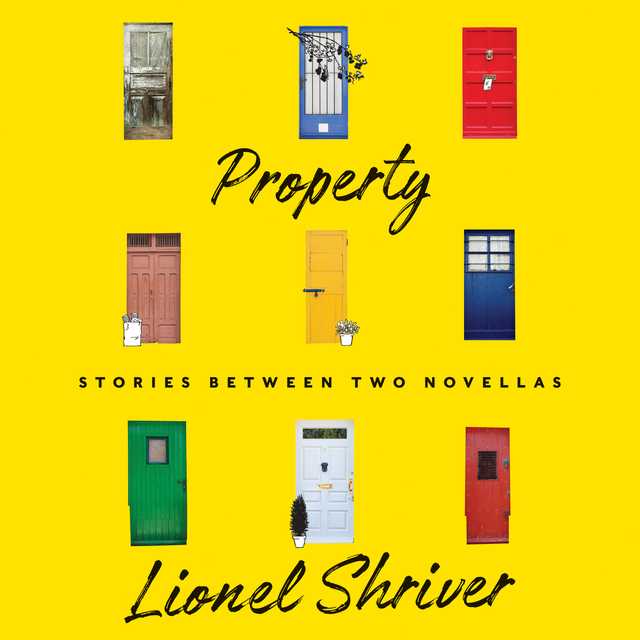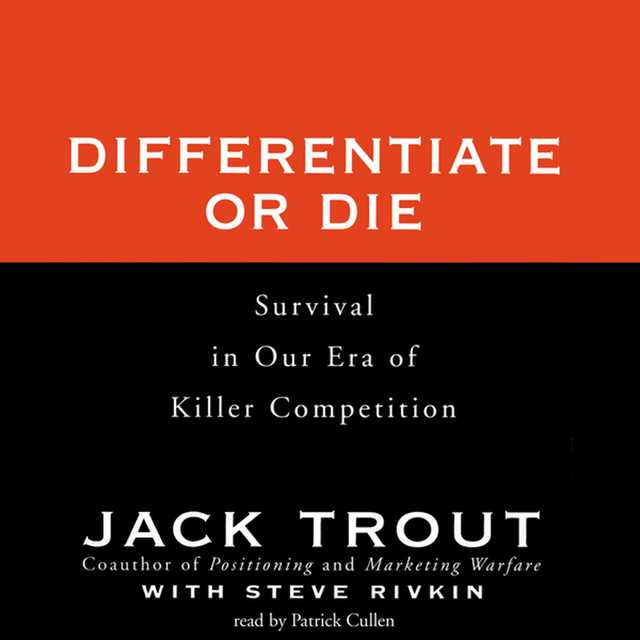Property Audiobook Summary
A striking new collection of ten short stories and two novellas that explores the idea of property in every meaning of the word, from the acclaimed New York Times bestselling author of the National Book Award finalist So Much for That and the international bestseller We Need to Talk About Kevin.
Intermingling settings in America and Britain, Lionel Shriver’s first collection explores property in both senses of the word: real estate and stuff. These pieces illustrate how our possessions act as proxies for ourselves, and how tussles over ownership articulate the power dynamics of our relationships. In Lionel Shriver’s world, we may possess people and objects and places, but in turn they possess us.
In the stunning novella “The Standing Chandelier,” a woman with a history of attracting other women’s antagonism creates a deeply personal wedding present for her best friend and his fiancee–only to discover that the jealous fiancee wants to cut her out of their lives. In “Domestic Terrorism,” a thirty-something son refuses to leave home, resulting in a standoff that renders him a millennial cause celebre. In “The ChapStick,” a middle-aged man subjugated by service to his elderly father discovers that the last place you should finally assert yourself is airport security. In “Vermin,” an artistic Brooklyn couple’s purchase of a ramshackle house destroys their once-passionate relationship. In “The Subletter,” two women, both foreign conflict junkies, fight over a claim to a territory that doesn’t belong to either.
Exhibiting a satisfying thematic unity unusual for a collection, this masterful work showcases the biting insight that has made Shriver one of the most acclaimed writers of our time.
Other Top Audiobooks
Property Audiobook Narrator
Lionel Shriver is the narrator of Property audiobook that was written by Lionel Shriver
About the Author(s) of Property
Lionel Shriver is the author of Property
More From the Same
- Author : Lionel Shriver
- Abominations
- The New Republic
- Ordinary Decent Criminals
- The New Republic
- The Motion of the Body Through Space
- Publisher : HarperAudio
- Abraham
- American Gods [TV Tie-In]
- Dead Ringer
- House of Sand and Fog
- Prey
Property Full Details
| Narrator | Lionel Shriver |
| Length | 14 hours 10 minutes |
| Author | Lionel Shriver |
| Publisher | HarperAudio |
| Release date | April 24, 2018 |
| ISBN | 9780062799289 |
Additional info
The publisher of the Property is HarperAudio. The imprint is HarperAudio. It is supplied by HarperAudio. The ISBN-13 is 9780062799289.
Global Availability
This book is only available in the United States.
Goodreads Reviews
Elyse
April 24, 2019
My god....I love Lionel Shriver. I should have my head examined for taking so long to return to the ‘queen-of -spectator’!!! NOW THIS IS GOOD READING!!! Lionel is so damn brilliant- intelligent beyond intelligent....She gets your blood pumping..Her prose is irresistible - perceptive - unnerving - dark - and totally entertaining...not ha ha entertaining- ( but I did laugh plenty)....more RICHLY SATISFYING entertaining. I looked up several exciting unfamiliar vocabulary words - and people I had never heard of....and giggled at the joy of doing so.. Here’s a word for ya: “vituperation”: a noun...means bitter or abusive language. And here’s an interesting man I never knew until Shriver introduced him to me:“Joseph Cornell”: He was an American artist and filmmaker, one of the pioneers and most celebrated exponents of assemblage...(three dimensional elements...similar to collage. Cornell’s most characteristic artworks were boxed assemblages. Shadow boxes usually fronted with glass pane. He could create poetry from the common place. ( forgive me for going off on a tangent - but I was intrigued) Before the first novella “ A Standing Chandelier” - ( two novellas and 10 short stories in all), the Epigraph asks us a question: “What is the effect of property upon the character.”“If you own things, what’s their effect on you? What’s the effect on me of my wood?“In the first place, it makes me heavy.“In the Second place, it makes me feel it ought to be larger”. E.M. Forester, “My Wood”. PROPERTY OF CHARACTER - it’s THEME - is explored in every story. In “The Standing Chandelier”, Jillian Frisk and Weston Babansky ( Baba) ... have been best friends for twenty years. Enter Paige. Paige and Weston become a romantic couple. “Having known the woman’s boyfriend for 20 some years conferred an unfair advantage. Paige doubtless new, too, that Jillian and Baba had slept together, and that was awkward”. Jillian states the obvious...”when people don’t like you, they don’t like you”. “Jillian found the experience of being disliked bewildering. She would involuntarilyverify the very qualities that the faultfinder couldn’t bear. Vanity? Flakiness? Staginess? “For intrinsic facet of being disliked was racking your brain for whatever it was that rubbed other people so radically the wrong way. They rarely told you to your face, so you were left with a burgeoning list of obnoxious characteristics that you could compile for them”. “So Jillian would demote her garb from festive to garish or even vulgar, and suddenly see how her offbeat thrift shop ensembles, replete with velvet vests, broad belts, tiered skirts, and enough scarves to kill Isadora Duncan three times over, could seem to demonstrate attention - seeking behavior. A clear, forceful voice to the leery merely loud, and whenever she suppressed the volume the better to give no offense, she simply became inaudible, which was maddening, too. Besides, she didn’t seem capable of maintaining a mousy, head down demeanor for more than half an hour, during which the sensation was tantamount to a Chinese foot binding of this soul”. Paige doesn’t want Julian to be in Weston’s life ‘whatsoever’- if Paige agrees to marry him. The dialogue is at times like observing a tennis match. ( ha... they do play tennis in this story). Who the hell is going to win the match? There is a lot that Paige doesn’t like about Jillian that I did love. “Jillian pursued purposelessness as a purpose in itself. It had taken her some years to understand that she’d had such trouble setting on a career because she didn’t want one. She was surrounded by go-getters, and they could have their goals, their trajectories, their aspirations—their feverish toiling toward some distant destination that was bound to disappoint in the unlikely instance they ever got there”. “Jillian wasn’t so much out to convert anyone else, simply to stop apologizing”Paige said that she wasn’t trying to convince Weston to despise Jillian - but the problem was getting worse. Paige says: “I couldn’t stand her when I met her, and I can’t stand her now that I’ve gotten to know her better. She acts as if her not doing anything professionally makes her so special, when most people don’t do anything. She absolutely has to be the central focus in any given group of people and whenever conversation strays from ‘her’ latest goofball project, or ‘her’ latest goofball outfit, she stops paying attention”. As to who does win the tennis match.... literally and figuratively ....Marriage or no marriage - friendship or not - will have your head spinning with thoughts. As to the ‘Chandelier’ itself.... it’s permanence- it’s presence in this story....YOU JUST MUST READ THIS STORY!I didn’t set out with a plan to write so much about this first Novella..... so I will shorten the rest of the review and say that I haven’t felt this jazz about a collection of stories - this much - since reading “The Wonder Garden” by Lauren Acompora. All of these stories are vibrant... exploring the ways in which we connect with each other. Sometimes life is cruel. People can be mean and ruthless - possessive of their belongings as well as possessive of their emotions. Using that new word I liked so much....here is how Shriver used it: “These days people indiscriminately sprayed *vituperation* every which way as if launching a mass acid attack in a crowded public square. Sheer meanness had become a customary form of entertainment”. I’ll end with saying .... this is by far the best collection of short stories I’ve read this year and I highly recommend it. And if you’ve never read Lionel Shriver.... do yourself a favor and read anything by her.
lucky little cat
February 21, 2019
You remember that kid back in your high school who was already troublingly, enviably sophisticated, had backpacked through Europe, Worse boundary issues than the Doubtful Guest's always drank Melitta hand-filtered coffee, and was bulldog-fierce about politics? That's Lionel Shriver, and that's also who her short-story protagonists are, at varying ages and maturity levels. These are men and women who swim too far out in an African river, work for a pittance for an Irish newspaper, renovate a gorgeous London townhouse, and create weirdly beautiful artworks glowing with Christmas lights. They use phrases like "trust-fund layabout" confidently. This is a lovably prickly book. The warmer, (sort of) comforting stories are up front in this sparkling collection, while the farther back you go, the more unsettling the tales become. (The final novella, wry and knowing, is the exception to the pattern.) Dead center in the collection is Shriver's remarkable New Yorker-published story "Kilifi Creek," an ideal introduction to the writer's work.Nominally, Shriver's specialty is the comedy of manners. But that label doesn't do justice to Shriver's authoritative and lively portraits of well-heeled thirty- to fifty-somethings engaged in generational, class, and romantic skirmishes. Can a man stay best friends with one woman while marrying another? Can wannabe empty-nesters manage to evict their thirty-two-year-old son? The recurring subject of several stories is the relative, guest, or ghost who just. won't. leave. Not quite. In each, the resolution is unpredictable but satisfying (if sometimes disturbing). Shh! Don't talk about it too loudly. It's a book for grown-ups.
Sub_zero
February 12, 2021
Quien haya leído la conocida novela de Lionel Shriver Tenemos que hablar de Kevin tiene idea de lo mordaz y ridículamente sangrante que puede llegar a ser la escritora norteamericana cuando se lo propone. En su nueva colección de relatos, Shriver (Carolina del Norte, 1957) articula una serie de sobresalientes piezas narrativas que giran en torno al concepto de propiedad, bien inmobiliaria o bien sentimental, y deja claro que no ha perdido ni un ápice de su particular derechazo.Sigue leyendo: http://generacionreader.blogspot.com/...
Sharon
December 29, 2017
Having heard great things about Lionel Shrivers writing, and already owning several of her titles -though as yet unread - I couldn't resist requesting this review copy. Described as a book of short stories I figured it would be a great opportunity to sample her style. It was! After one story I already felt convinced she was going to find her way onto my list of favourite authors. Sometimes short stories can be a hit and miss affair for me but in this case the hits were definitely in the majority. There was plenty of variety in the tone and type of stories, ranging from comical, sentimental, cynical and thought provoking. Too many to describe in detail but I'll provide some thoughts on three of my favourites. The first story 'A Standing Chandelier: A Novella' was a fascinating and moving look at human nature. An enduring friendship between a man and a woman, 25 years in the making. A friendship seemingly treasured by both parties but one which was never the less sacrificed in the name of love. As an outsider looking in I could understand, if not necessarily respect, each of the characters stand points and to some degree the responses to the situation they found themselves in. For such a short story I was heavily invested in the plight of these friends. Another which captured my attention was Domestic Terrorism. This showcased Shrivers wittiness and cynicism. A couple in their 50's with a 32 year old son who had never had a job or moved out of home, nor did he have any intention of doing so. There was no flying the coop for this son, even being pushed out of the nest backfired on mum and dad who eventually capitulated. Finally, The ChapStick contained some great obvservations on family relationships, on aging and some cynical commentary about the airport anti-terror check in process and the people who enforce the rules. One of my favourite paragraphs, one which resonated with some personal experiences with the elderly, was found in this story. "...Before he'd any first hand experience of the parental fade to black Peter would have imagined a softening, a rounding of the edges, on the part of both parent and erstwhile child - as if both parties were scoops of icecream placed for a benedictory moment in the sun, and all the rumples, ridges and rills smoothed to leave uniform balls of benevolence. To the contrary, the aged seemed to seize even more stiffly into who and what they had always been - their rumples got bumpier, their ridges peaked, the rills ran deeper so that if you could compare them to icecream, it was more to the sort so hard that you couldn't ram a spoon into the carton" Many thanks to Lionel Shriver, HarperCollins publishers and Edelweiss for the review copy in exchange for an honest review which it was my pleasure to provide.
SueKich
May 21, 2018
I love Lionel.Two novellas sandwiching a collection of short stories. The Standing Chandelier has already been published as a stand-alone novella (reviewed on the product page). But for me it’s Shriver’s first short story, The Self-Seeding Sycamore, that wins the day and alone is worth the price of admission. As a rule, I’m not a lover of the short story format but these thirteen pages about a recently widowed fifty-something who has no choice but to take over her late husband’s onerous gardening duties gave me more undiluted pleasure than anything I’ve read in a long time. (As the recent new owner of an unkempt wilderness, my empathy level was at an all-time high!)If I had to find a quibble it would only be that in her Brit-set stories one encounters US spelling; adjusting the spelling to the setting would have been a thoughtful editorial touch. There’s also the odd Americanism: I have never heard the word ‘stroller’ used here for a pushchair (maybe buggy at a pinch) and using ‘figured’ for ‘thought’ as in “Figured you might not recognize me after all these years” is surely questionable. (Have long have you lived here Lionel?) But no matter, I can forgive her anything because I love her. This collection presents a fantastic mix of characters and storylines, each making a telling point and linked not only by the theme of ‘property’ but also by an element of “be careful what you wish for”. Shriver’s prose is ‘proper grown up’ and it’s worth slowing down one’s reading pace to savour her sentences. Now, who said I didn’t like short stories?
Anissa
October 13, 2019
I've had this collection in my TBR pile for a while and am so glad I decided finally to read it. All are stories about the relationships people have with property. The property they own or don't, want or don't, inherit or bequeath, buy or sell, the list goes on. I found myself taking sides and also seeing opposing points of view with plenty of eye-rolling and laughter along the way.The opening novella, The Standing Chandelier was very engrossing and the perfect lead in to the collection. While I didn't love every story, my favourites, in no particular order, were the following: Domestic Terrorism The Royal Male Exchange Rates Repossession The Chapstick Negative Equity The closing novella wasn't my favourite but overall this was a great collection of short stories and as it elicited quite strong feelings in me about property, ownership and fairness, I have to give this a very strong recommend.
Leo
November 15, 2022
Her most accessible yet I think :)I read in an interview that she prefers novels—so, maybe the idea that short stories/ novellas can do less led to less serious subject matter than her usual fare.Her characters as always are excellent, and even with somewhat familiar premises at times, more than any book I've read in a long while, I really wanted to know how each story ended, because it's access to how Shriver sees the world.Her sentences are torturous af sometimes though! Still with the crazy speech tags for one: "he introduced"? The eff is that? We've moved on a bit since Edith Wharton and Henry James...Recommended in spite of that. And TO spite The Guardian for this dumbass review:https://www.theguardian.com/books/201...Scolding her for not holding their political beliefs (but not too much because she writes for The Guardian sometimes!) And barely a scold at that, because she so much as suggested ambiguity towards issues of immigration. She asked the reader to question something that dare not be questioned!! In a work of FICTION you say?!Such a double bind of crappery they'd have been better saying nothing.
Xenja
August 05, 2021
Comprammo la Baracca. Confesso che i nostri genitori ci diedero una mano per l’anticipo. Però nessuna banca era disposta a concedere un mutuo a una decoratrice e a un chitarrista blues che tirava su al massimo quaranta dollari a sera e qualche consumazione gratis. Io feci in fretta a trovare lavoro, perché ero brava e motivata, e non penso che alla fine si sia rivelata una mossa sbagliata optare per uno studio di design commerciale – anche se mentre inventavo il logo di un’azienda o la copertina di un catalogo di computer a volte provavo nostalgia per quando dipingevo leonesse nello stile di Henri Rousseau sulla parete accanto al letto a castello di un bimbo di sei anni. Però provo un gran piacere quando trovo una bottiglia di salsa piccante con l’etichetta disegnata da me, e un lavoro vero rende di sicuro di più. Garantisco che a Michael non era andata altrettanto bene con Slide, il piccolo jazz club che si era messo a gestire a Fort Greene. Anche se sulla carta sembrava un buon compromesso, se sei il gestore non ti esibisci, e lui finì per maneggiare più fusti di birra che la chitarra. Ma sono convinta che il nostro matrimonio avrebbe retto abbastanza bene il passaggio a un lavoro serio, se non fosse stato per la casa.Interessante e particolare questa raccolta di racconti. Ce ne sono di brevi, leggeri e umoristici, e un po’ surreali, e ce ne sono di lunghi, storie intricate di amori e di amicizie, storie soprattutto di liti, conflitti e rotture. Tutti sono percorsi da una forte vena di ironia, ma quelli lunghi sono tutt’altro che leggeri, intrisi di dolore e di rabbia. Non potrei trovarmi più d’accordo sulla difficoltà di confrontarsi e capirsi fra generazioni diverse, fra amici e amanti di temperamento opposto eppure costretti a coabitare, dentro una casa, un condominio, una città, o semplicemente sullo stesso nostro pianeta; l’epoca che stiamo vivendo lo dimostra bene: l’umanità è varia e agguerrita, ci sono i pro-vax e i no-vax, ci sono gli educati e i maleducati, i generosi e i meschini, gli onesti e i disonesti, gli arroganti e gli altruisti, ci sono quelli che hanno avuto vita facile e quelli che affogano nei guai, i conflitti sono inevitabili e spietati, e lasciano talvolta cicatrici profonde. Shriver li aizza gli uni contro gli altri, con uno sguardo affilato e arguto, scandaglia i minimi dettagli della nostra società, le nostre abitudini, le mode, i cliché, i sensi di colpa, le aspirazioni, le odiose faccende di soldi, grandi e piccole, che ci dividono e ci avvelenano la vita; disegna personaggi a tutto tondo, assolutamente reali. Il risultato è un vivo affresco di un’umanità varia e quanto mai attuale, frustrata dalle due varianti che segnano il nostro tempo e che si intrecciano determinando sempre più il corso delle nostre vite: le difficoltà professionali e i costi inaccessibili di case e mutui. Si ride, ma con amarezza. In teoria, a un certo punto qualcuno avrebbe dovuto dire al padre di Peter di farla finita con quegli atteggiamenti da megalomane. Invece no: più uno se la tira, più quelli che tratta come pezzi di merda si convincono che deve avere davvero delle doti straordinarie, sennò sarebbe stato già ridimensionato. Gli stronzi possono permettersi di essere tali perché hanno sempre fatto gli stronzi senza problemi, e nessuno ha intenzione di turbare l’ordine naturale dell’universo.
Sid
March 24, 2019
I thought Property was very good indeed. I don’t always get on very well with short stories but I found this collection to be beautifully written, insightful and thought-provoking.The supposed binding theme of property is pretty tenuous, to be honest; the stories are about far more than that, with an aspect of property and ownership being just one theme of each story, but that didn’t matter at all to me. These are primarily character studies and feature what Lionel Shriver does so well, which is to get right inside a character and illustrate brilliantly the sometimes contradictory elements which go to make up a person and how they can determine major aspects of our lives. The two novellas which begin and end the collection are especially good at this; just as a small example, I liked this little passage from The Standing Chandelier:“He recognized something in her, too – a difficulty in figuring out just how to be with people. When he saw this awkwardness in someone else, he could see how attractive it was when you didn’t like artifice, and would rather be genuinely uncomfortable than insincerely at ease.” Don’t look for fast-paced action and plot here, but I found The Standing Chandelier as involving as any thriller and the other stories were very good in their way. Property is a pleasure to read and a thoroughly rewarding book. Warmly recommended.
Mieke
March 13, 2019
Een mooie verzameling van tien korte verhalen wordt door twee novellen omhelsd: 'De staande kroonluchter' en 'De onderhuurster'.Beide novellen lezen heerlijk en de personages groeien voor je ogen in hun rollen."Baba wist vaak niet wat hij moest zeggen, en zei dan maar niets. Ze leerde van hem dat zwijgen niet ongemakkelijk hoefde te zijn, en sommige van hun rijkste momenten samen waren stil." 'Bezit' in alle betekenissen van het woord wordt door Shriver onder de loep genomen; zowel de macht die opgeroepen kan worden door het in bezit hebben van iets, of een bezitterig gevoel over iemand krijgen. Lees mijn recensie hier verder: https://graaggelezen.blogspot.com/201...
P.
November 06, 2018
Hilarious, riveting stories that are an absolute delight to read. If you're looking for an arresting read bubbling with wit, humour, provocation, and tension, you can totally count on Shriver. This collection of short stories and novellas are centred around the effect of property on character. 'Ownership is as much state of mind as legal entitlement', claims a character in one of the stories; in several interesting scenarios this sense of property is explored. Naturally, I liked some stories more than others - but except for two stories that were not to my taste: Repossession and The Subletter, all of them can be placed in the spectrum between very good and fantastic. The Standing Chandelier was my favourite in the lot.
Jessica
April 26, 2018
Thanks to Harper Books for the advanced copy in exchange for my honest review.If you have followed my reviews for awhile, then you'll know that I'm a big fan of short stories and novellas. I know they're hit or miss for a lot of people, but I have a huge appreciation for authors that can really pack a punch or leave an impression in a smaller book. PROPERTY by Lionel Shriver (author of WE NEED TO TALK ABOUT KEVIN) is 10 short stories between 2 novellas. The common theme? Our relationship with property, in every sense of the word.There are stories that range from chandeliers playing witness to a love triangle, a widow's love/hate relationship with a tree, a mailman hoarding instead of delivering, an interaction with a TSA agent and some chapstick, a married couple divorcing but having to remain in the same household, embezzlement, and coexisting with a woman subletting before the owner can move out. We get a glimpse into the lives of many characters with different backgrounds, troubles, and property. I loved how Shriver looked into the many meanings of the word property and our relationships with them. If you like short stories, then this is one you need to pick up. Shriver is a great writer and is able to make an impression in a small amount of pages in each story. Twelve packed into a book sounds like a lot, but I enjoyed them all!I give this 5/5 stars!
Maddie
July 11, 2018
These stories all make you think about the emotional relationship we have with things we own. Each story is different and interesting enough that the book doesn't feel like a slog. Some of the stories were even cheerful instead of depressing! "Exchange Rates" was my favorite story. It was truly affecting and didn't need to be long and bloated with detail (as the novellas were) to really capture a character and pack an emotional punch.
Frequently asked questions
Listening to audiobooks not only easy, it is also very convenient. You can listen to audiobooks on almost every device. From your laptop to your smart phone or even a smart speaker like Apple HomePod or even Alexa. Here’s how you can get started listening to audiobooks.
- 1. Download your favorite audiobook app such as Speechify.
- 2. Sign up for an account.
- 3. Browse the library for the best audiobooks and select the first one for free
- 4. Download the audiobook file to your device
- 5. Open the Speechify audiobook app and select the audiobook you want to listen to.
- 6. Adjust the playback speed and other settings to your preference.
- 7. Press play and enjoy!
While you can listen to the bestsellers on almost any device, and preferences may vary, generally smart phones are offer the most convenience factor. You could be working out, grocery shopping, or even watching your dog in the dog park on a Saturday morning.
However, most audiobook apps work across multiple devices so you can pick up that riveting new Stephen King book you started at the dog park, back on your laptop when you get back home.
Speechify is one of the best apps for audiobooks. The pricing structure is the most competitive in the market and the app is easy to use. It features the best sellers and award winning authors. Listen to your favorite books or discover new ones and listen to real voice actors read to you. Getting started is easy, the first book is free.
Research showcasing the brain health benefits of reading on a regular basis is wide-ranging and undeniable. However, research comparing the benefits of reading vs listening is much more sparse. According to professor of psychology and author Dr. Kristen Willeumier, though, there is good reason to believe that the reading experience provided by audiobooks offers many of the same brain benefits as reading a physical book.
Audiobooks are recordings of books that are read aloud by a professional voice actor. The recordings are typically available for purchase and download in digital formats such as MP3, WMA, or AAC. They can also be streamed from online services like Speechify, Audible, AppleBooks, or Spotify.
You simply download the app onto your smart phone, create your account, and in Speechify, you can choose your first book, from our vast library of best-sellers and classics, to read for free.
Audiobooks, like real books can add up over time. Here’s where you can listen to audiobooks for free. Speechify let’s you read your first best seller for free. Apart from that, we have a vast selection of free audiobooks that you can enjoy. Get the same rich experience no matter if the book was free or not.
It depends. Yes, there are free audiobooks and paid audiobooks. Speechify offers a blend of both!
It varies. The easiest way depends on a few things. The app and service you use, which device, and platform. Speechify is the easiest way to listen to audiobooks. Downloading the app is quick. It is not a large app and does not eat up space on your iPhone or Android device.
Listening to audiobooks on your smart phone, with Speechify, is the easiest way to listen to audiobooks.






























